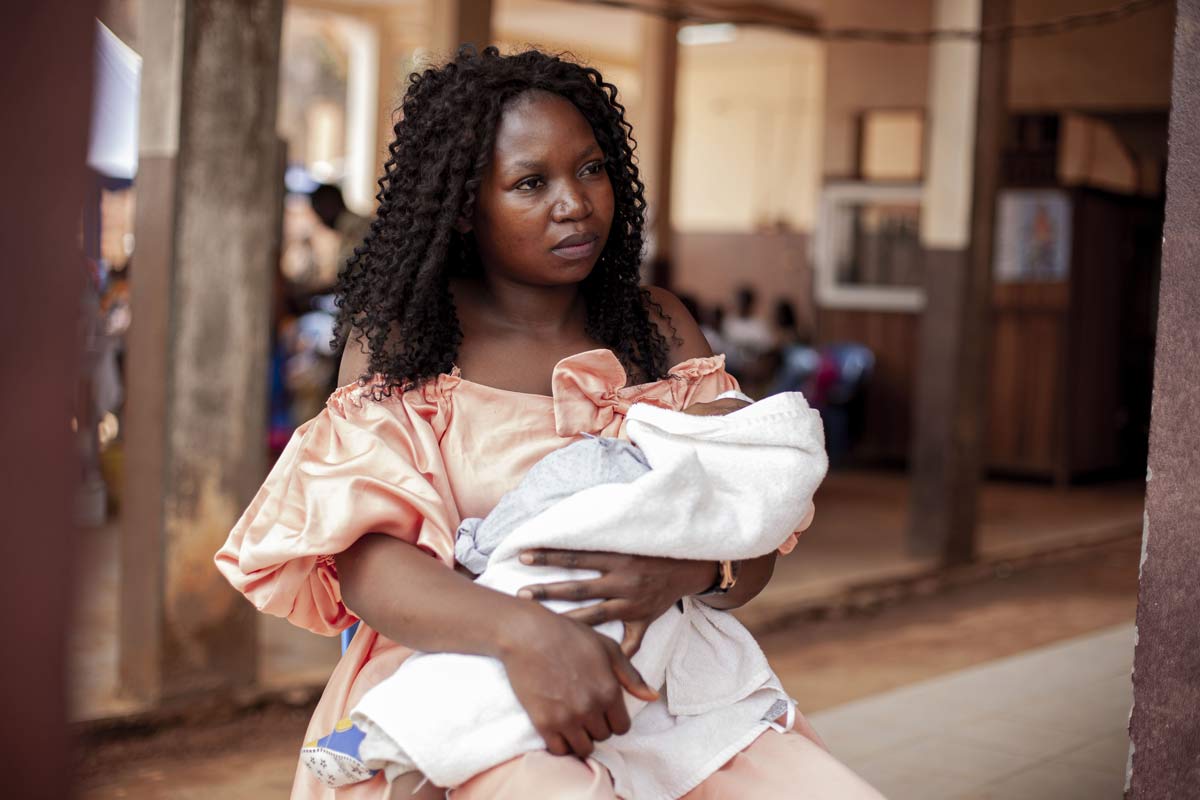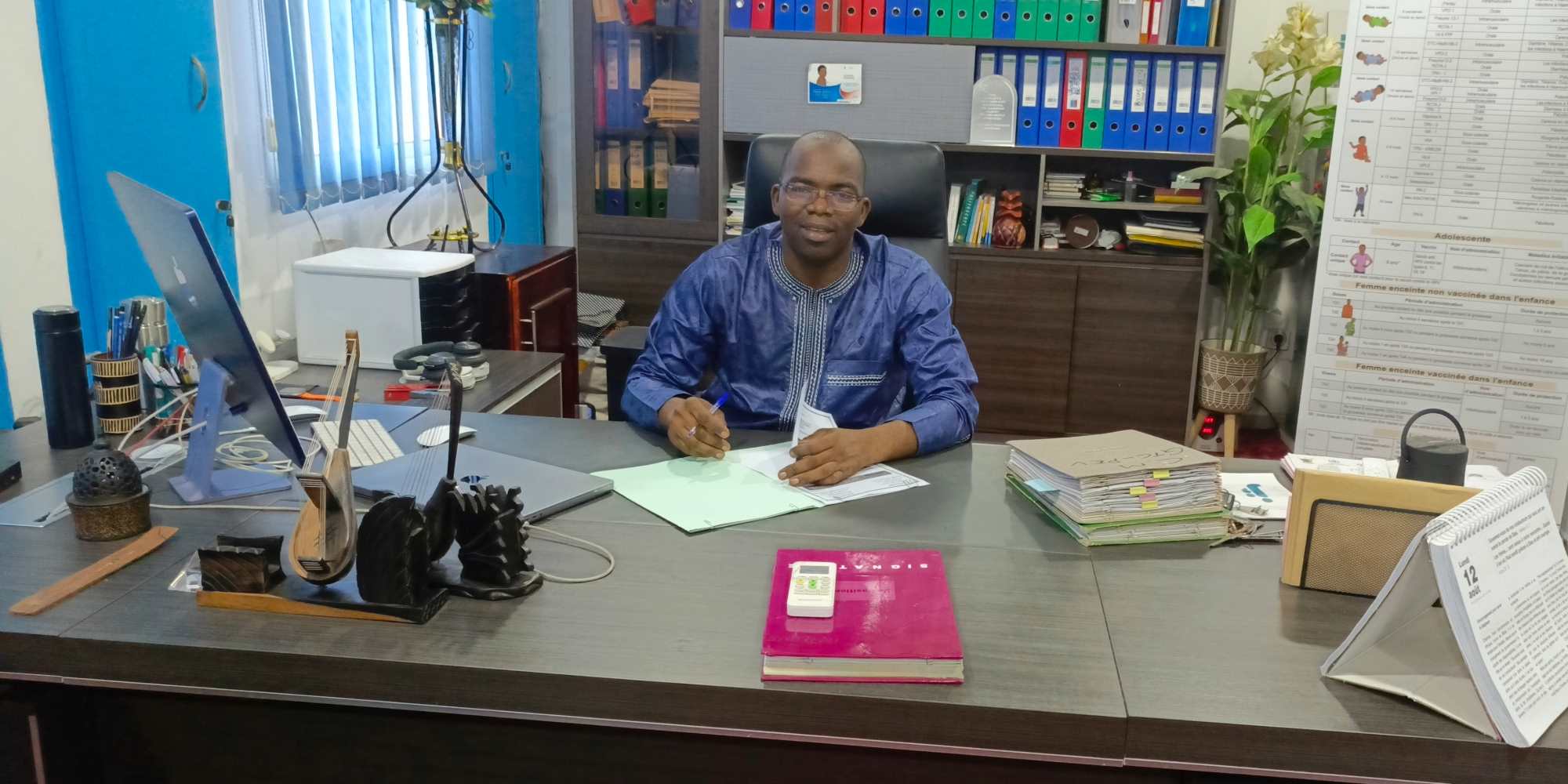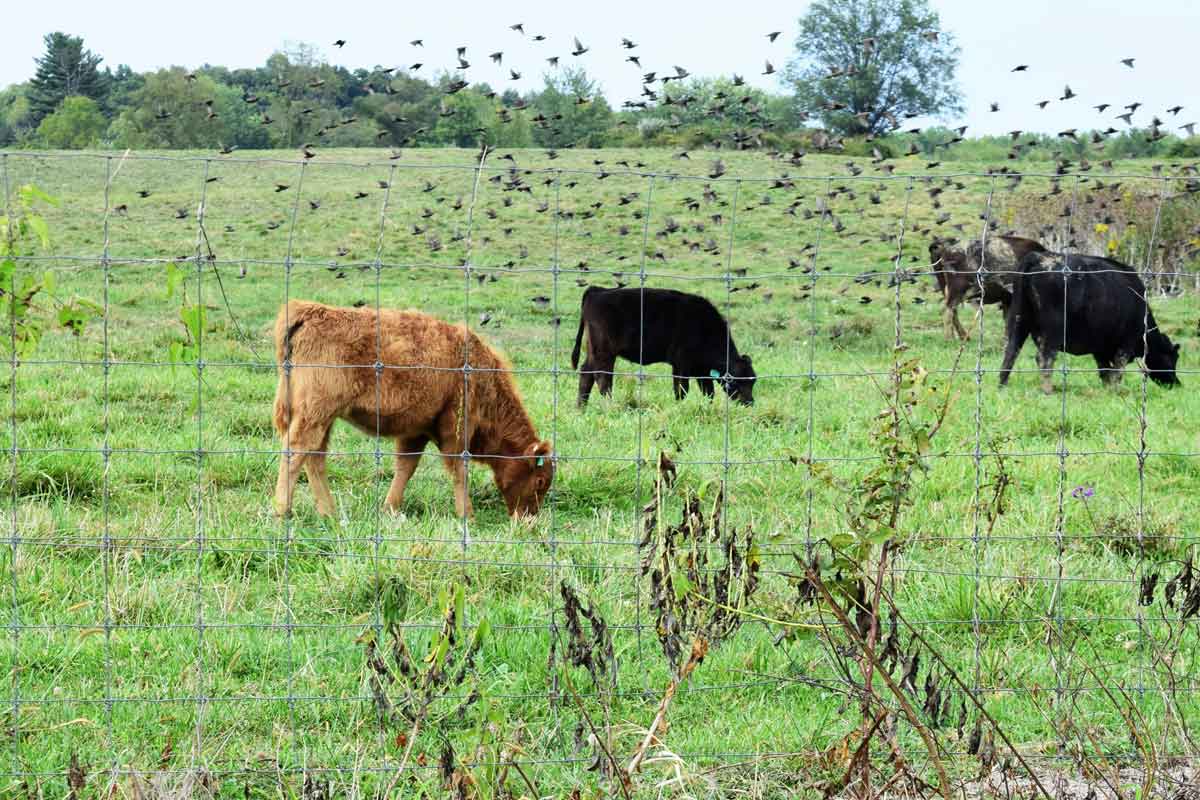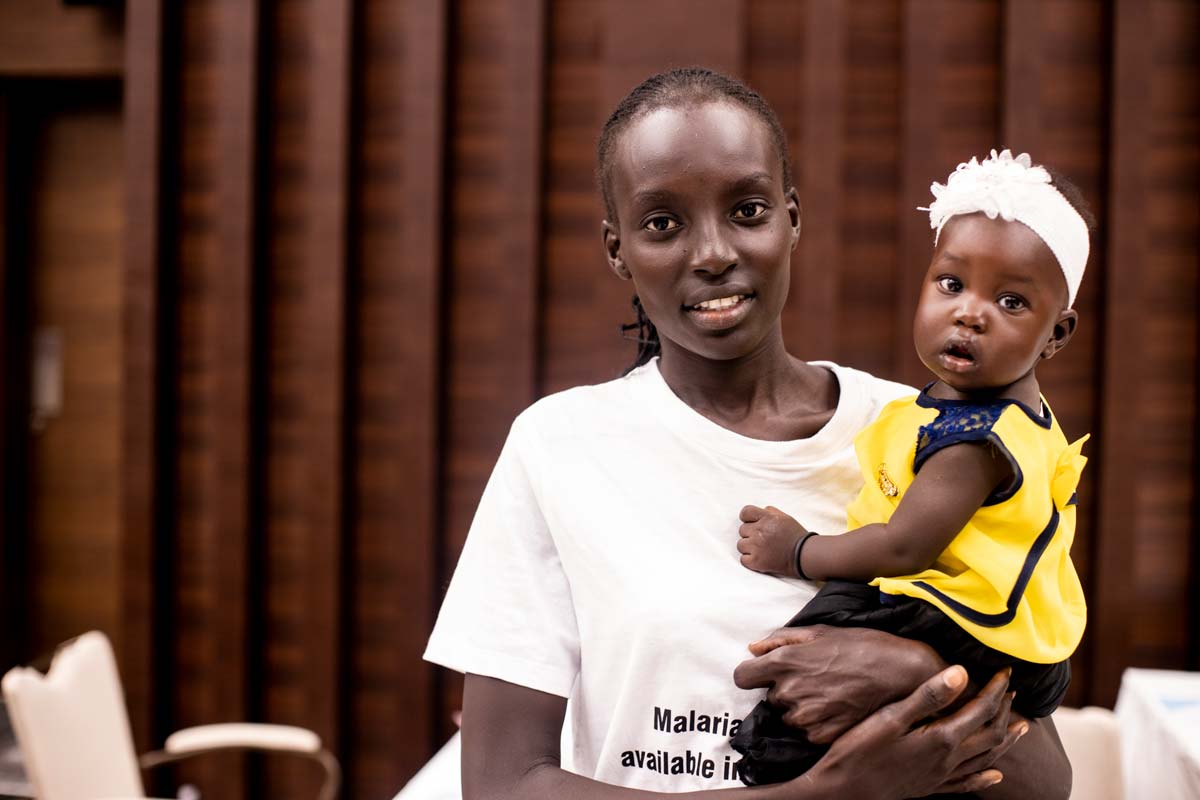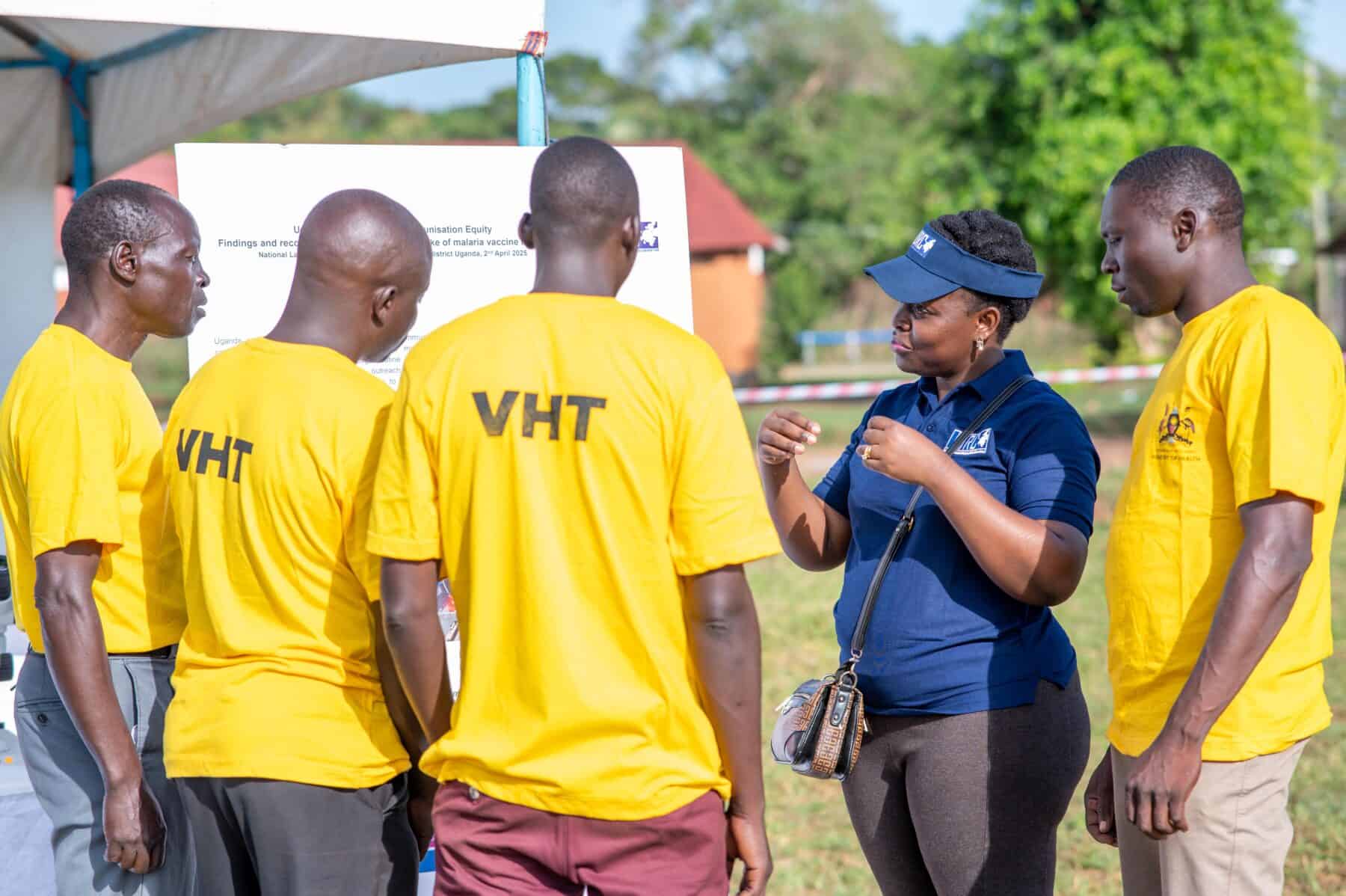Cameroon launches new offensive against variant type-2 poliovirus
Being wild polio-free is no guarantee against resurgence, experts caution, as the country battles to repair its vaccine safety net.
- 23 October 2023
- 6 min read
- by Nalova Akua
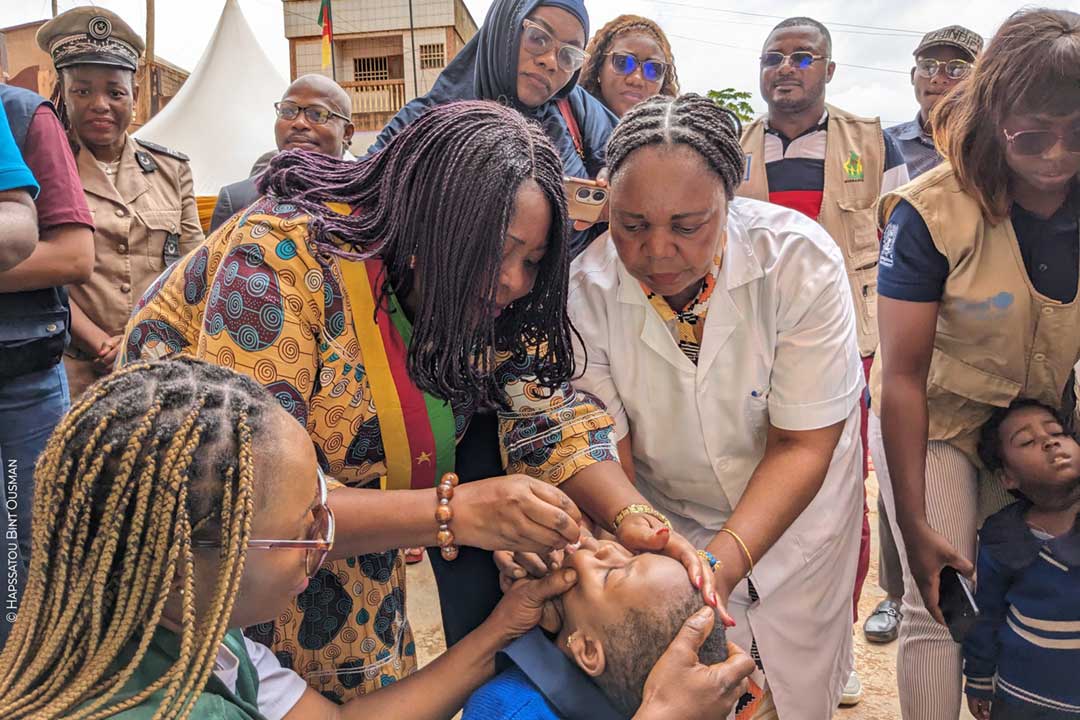
Twenty-nine-year-old Isabella Bayena watched with satisfaction as her baby son, Gabriel Fonyuy received two drops of the novel oral polio vaccine (nOPV2) at the Etoug-Ebe Baptist Hospital in Cameroon's capital, Yaounde, on September 23, 2023. It was the first time that Fonyuy – aged three months and two weeks – was taking a dose of the new vaccine. "Now that my child has taken this vaccine, I know he is protected against the polio virus," Bayena says. "My first child [seven years old] has completed his polio vaccine doses. Polio vaccine helps shield my child from disability."
"Our hope is that vaccination should not be tied to campaigns only. To stop polio from circulating, national vaccination coverage must reach at least 90%."
– Dr Shalom Tchokfe Ndoula, EPI
As Bayena left, Gael Metoh, aged 27, quickly stepped forward to have her son vaccinated too. She believes that the vaccine is a "very good thing" for Clovis Lemuel, who has just turned five. "I make sure that all my children are vaccinated," Metoh said, somewhat loftily. "I came to the hospital for something else, then realised there was a free vaccination campaign and decided to have my child vaccinated. Now I am very confident that he is protected against the polio virus," she said, admitting nonetheless to having no idea of how polio manifests.
Emergency
Late September saw a three-day polio campaign staged across six of Cameroon's ten regions. Children aged up to five years in Centre, Littoral, North West, South West, South, and West stepped up for doses of the oral immunisation.
The campaign is a next step in a phased response to a polio outbreak that was confirmed in August 2022.
In June 2023, three new cases of type-2 variant poliovirus were discovered. While there have been no human cases since, the detection of virus in an environmental sample in August 2023 confirmed that despite progress, the virus is still circulating and needs to be halted.
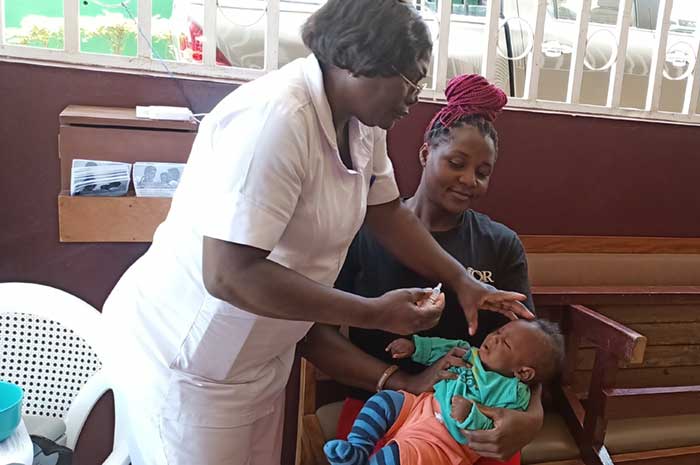
In a press release issued on August 23 2023 after the notification of two additional virus isolates from the same site, Cameroon's Minister of Public Health, Dr Malachie Manaouda, said the sequencing results showed that the viruses belonged to the NIE-ZAS-1 (Nigeria) emergence group, all of which, he added, were "genetically related" to the viruses circulating in the Lake Chad basin.
"The situation constitutes a national public emergency, given the high risk of the virus spreading. The context reflects the persistence of pockets of under-immunised populations, particularly in urban areas, with the fear of importing other polioviruses, including the wild form," the Minister added. Mobile vaccination teams were dispatched to 127 health districts of the six regions, while others visited households, schools, markets, palaces, churches and mosques.
Cameroon shows up
Mrs Yengo Ruth, State Registered Nurse in charge of vaccination at the Etoug-Ebe Baptist Hospital told VaccinesWork that "many" parents turned up at the health facility to have their children vaccinated. Every vaccinated child had their fingers marked with ink to avoid any incidence of double vaccination.
Have you read?
"Very few people refused to have their kids vaccinated," Yengo says. "We had to persuade some parents. We educated them on the importance of polio vaccines. Unvaccinated children constitute a danger to society," she said.
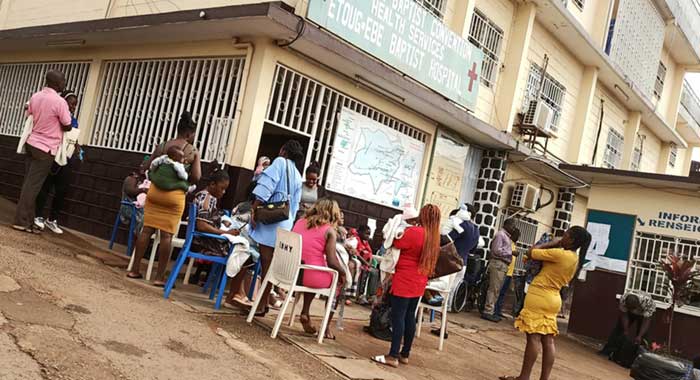
Credit: Nalova Akua
Mr Jean Noël Messinde Otthou, field epidemiologist at the Expanded Programme on Immunisation (EPI) in Cameroon who was assigned to oversee the vaccination exercise at the Djoungolo health district area, shared a similar experience. The "very few" refusal cases recorded were tactfully managed, he says. "We had time to clearly re-explain what the vaccination campaign was all about and the parents finally accepted that their kids be vaccinated," he said, adding that the health district ended up recording a 110% coverage rate. "Many parents didn't really know what poliovirus is. We used tips and social mobilisers to explain to them what it is, and how it manifests."
Targets outstripped
The aim of the campaign was to vaccinate 2,923,000 children. In the end, 3,188,000 children were vaccinated. Dr Shalom Tchokfe Ndoula, permanent secretary of EPI, says the campaign was a stitch in time to arrest the circulating type-2 poliovirus variant. A follow-up three-day vaccination campaign in the six regions is slated early November 2023.
"Vaccination is a key tool to prevent poliomyelitis," Dr Ndoula told VaccinesWork. "Our hope is that vaccination should not be tied to campaigns only. To stop polio from circulating, national vaccination coverage must reach at least 90%. At the same time, efforts must also be made by neighbouring countries to stop poliomyelitis," he said, adding, that the polio vaccine is already integrated into Cameroon's regular childhood vaccination calendar.
"There are practically four oral doses of polio vaccines that we routinely give to children in Cameroon. The first is given immediately after birth. Three doses, are given at the sixth, tenth and 14th weeks," he said, adding that it was also important to note that at 14 weeks and nine months, injectable polio vaccine is also given.
Wild-polio-free – but not yet polio-free
Cameroon was certified free of wild poliovirus in June 2020. It was nearly four years since the entire African Region had last recorded a wild poliovirus case.
Despite the threat posed by the circulating type-2 poliovirus variant, Cameroon's Health Minister has reassured that the country's wild poliovirus free status remains intact.
In May and July last year, a vaccination campaign against poliomyelitis was organised in the Adamawa, East, Far North and North regions of Cameroon, targeting 3,436,902 children. Children 0–59 months were administered the nOPV2 polio vaccine, while under-immunised children aged 0-_23 months received routine catch-up vaccines.
COVID damage
Polio vaccination coverage in Cameroon has seen something of a drop-off in recent years. While six of the country's ten regions had a polio vaccination coverage of at least 80% before 2020, just four out of ten regions have been able to boast an 80% or higher polio vaccination coverage since 2020, according to a recent study published in the Pan African Medical Journal.
"Despite Cameroon’s wild polio-free status, the threat of a resurgence of polio still exists."
– Tetanye Ekoe, Professor Emeritus of Pediatrics, and President of the Cameroonian National Committee for the Eradication of Poliomyelitis
Tetanye Ekoe, Professor Emeritus of Pediatrics, and President of the Cameroonian National Committee for the Eradication of Poliomyelitis, attributes the resurgence of type-2 variant poliovirus in Cameroon to the "decline in children's immunity to the polio virus."
Experts explained that while some parents resisted having their children vaccinated, the primary reason for the drop-off in immunisation rates was operational. Poor geographical coverage meant households were missed out in vaccination campaigns, and important strategies like revisits were imperfectly implemented.
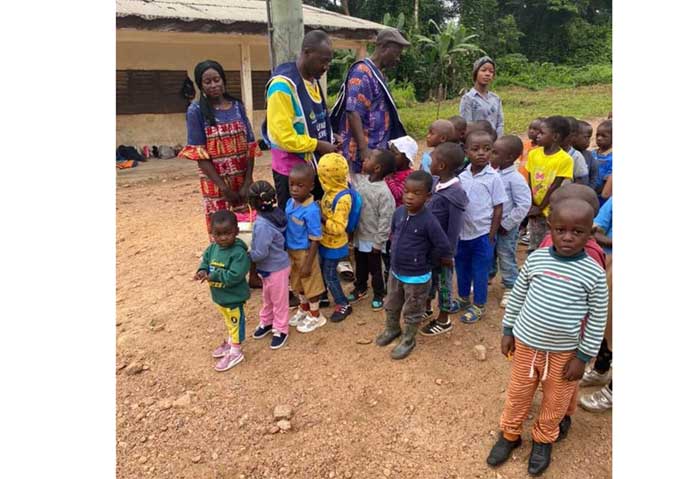
Credit: EPI Cameroon
Professor Ekoe said it was a right decision for Cameroon to start the vaccination campaigns in the polio virus-prone regions of the country. The implementation of joint polio vaccination campaigns with neighbouring countries of Nigeria and Chad is also "essential", as this may require "more means and resources," he says.
"Despite Cameroon's wild polio-free status, the threat of a resurgence of polio still exists," he says. "The new type-2 oral polio vaccine is a modified form of the monovalent oral polio vaccine, designed to be more genetically stable and less likely… to revert to a form that can cause permanent paralysis in children due to vaccine-derived poliovirus."

